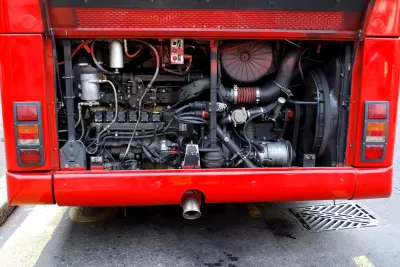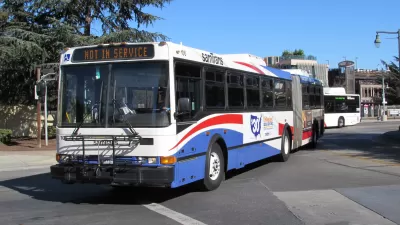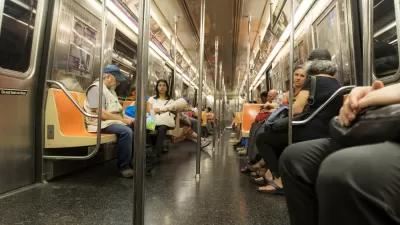Eighty-four percent of U.S. transit agencies surveyed said CDL complexity was a hiring obstacle, with the “under-the-hood” requirement being the most challenging.

According to an article from Mass Transit, 85 percent of public transit agencies across the country continue to face worker shortages in the wake of the pandemic, particularly bus operators. The American Public Transportation Agency has identified one bottleneck: the Commercial Driver’s License engine compartment component of the pre-trip vehicle skills testing requirement, known as the ‘‘under-the-hood’’ testing component. To help close the gap, APTA has requested the Federal Motor Carrier Safety Administration to grant a 5-year exemption from the requirement for public transit operators.
“According to APTA, its research shows that 84 percent of transit agencies cite CDL complexity as a hiring obstacle, with the under-the-hood requirement rated as the most challenging aspect of obtaining a license. The association says the requirement is particularly burdensome, as transit agencies transition to zero-emission buses, where traditional engine components are being replaced by electric powertrains,” the article reads.
There is precedent for similar exemptions. Back in 2022, the FMCSA granted a similar exemption to the school bus industry when they were struggling to recruit more, and younger, drivers. Additional reasoning behind the request is that bus operators are not required for vehicle maintenance, which falls to trained mechanics, and the industry’s transition to zero-emissions makes much of the testing obsolete.
FULL STORY: APTA requests five-year exemption from CDL ‘under the hood’ testing requirement for public transit operators

Study: Maui’s Plan to Convert Vacation Rentals to Long-Term Housing Could Cause Nearly $1 Billion Economic Loss
The plan would reduce visitor accommodation by 25,% resulting in 1,900 jobs lost.

North Texas Transit Leaders Tout Benefits of TOD for Growing Region
At a summit focused on transit-oriented development, policymakers discussed how North Texas’ expanded light rail system can serve as a tool for economic growth.

Using Old Oil and Gas Wells for Green Energy Storage
Penn State researchers have found that repurposing abandoned oil and gas wells for geothermal-assisted compressed-air energy storage can boost efficiency, reduce environmental risks, and support clean energy and job transitions.

Opinion: DC Encampment Sweeps Hide, but Don’t Solve, Homelessness
President Trump recently ordered the clearing of encampments built by unhoused people on federal land in Washington, D.C.

Santa Barbara Could Build Housing on County Land
County supervisors moved forward a proposal to build workforce housing on two county-owned parcels.

San Mateo Formally Opposes Freeway Project
The city council will send a letter to Caltrans urging the agency to reconsider a plan to expand the 101 through the city of San Mateo.
Urban Design for Planners 1: Software Tools
This six-course series explores essential urban design concepts using open source software and equips planners with the tools they need to participate fully in the urban design process.
Planning for Universal Design
Learn the tools for implementing Universal Design in planning regulations.
Ascent Environmental
Borough of Carlisle
Institute for Housing and Urban Development Studies (IHS)
City of Grandview
Harvard GSD Executive Education
Toledo-Lucas County Plan Commissions
Salt Lake City
NYU Wagner Graduate School of Public Service





























